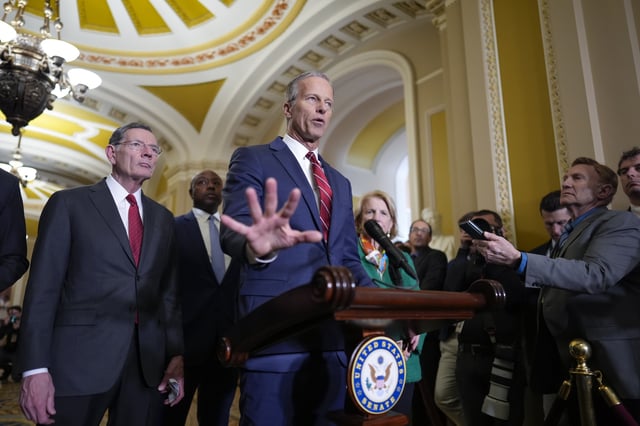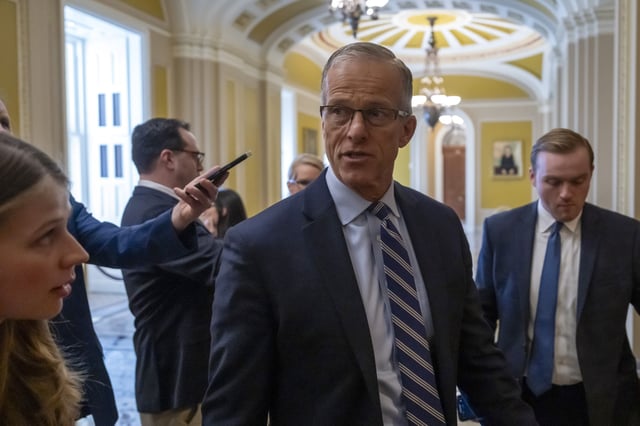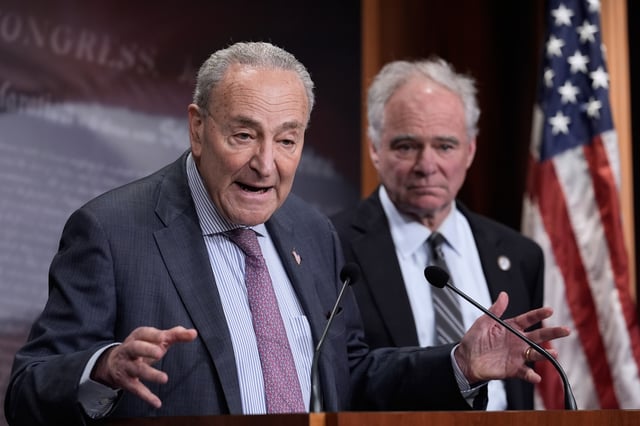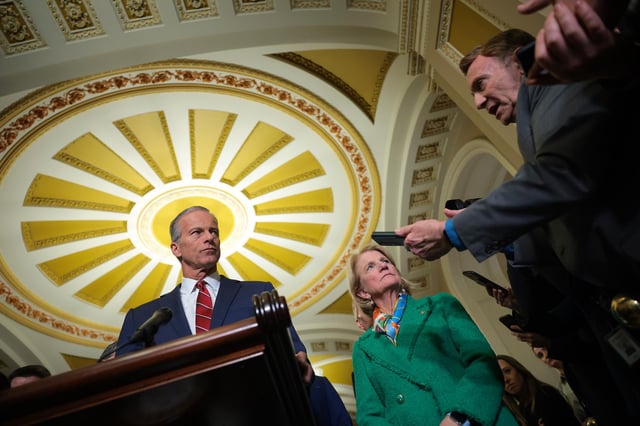Overview
- The Senate's budget resolution proposes $1.5 trillion in new tax cuts and makes Trump's 2017 tax cuts permanent, using a disputed accounting method to score them as costless.
- The resolution raises the debt ceiling by $5 trillion, exceeding the $4 trillion increase proposed by the House, to avoid a default projected for late summer 2025.
- Minimal spending cuts of $4 billion are outlined in the Senate resolution, contrasting sharply with the House's proposed $1.5 trillion in cuts, creating significant inter-chamber tensions.
- The resolution sets aside $150 billion for defense and $175 billion for border security over the next decade, aligning with Trump's legislative priorities.
- Republicans aim to pass the resolution through budget reconciliation to bypass the Senate filibuster, but criticism mounts over its potential deficit impact and Medicaid cut implications.



